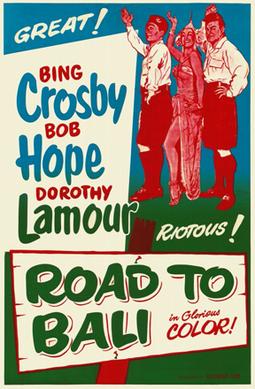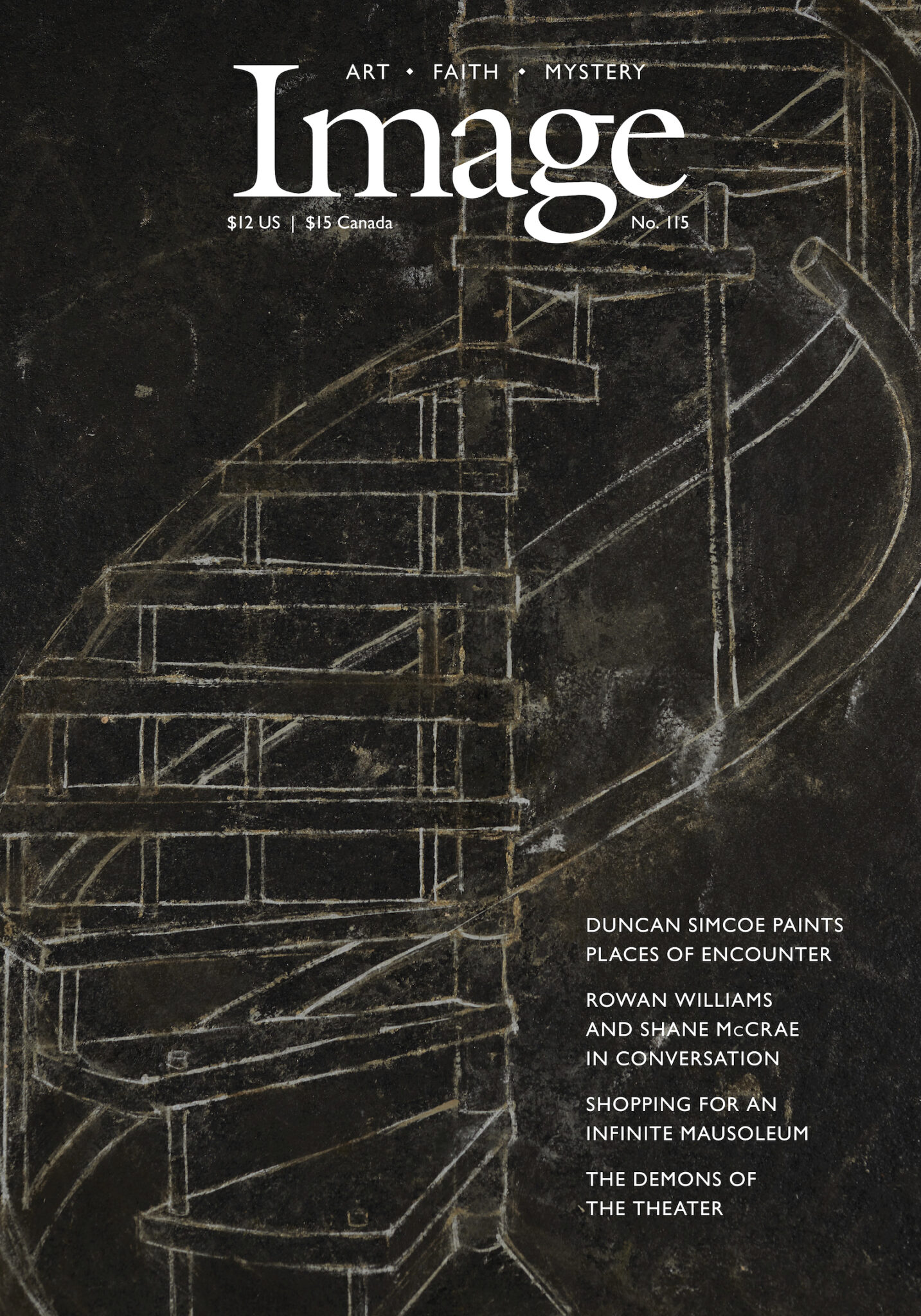A short definition for the road film genre
A subgenre of the travel film, with a fictional narrative governed by movement, usually via car/road. The road movie tends to display a certain metaphysical or existential bent, via themes of rebellion, escape, discovery, and transformation, and is typified by an attenuated or picaresque narrative. The physical constraints of filming in a car tend to lead to a heavy reliance on side-by-side shots and the foregrounding of dialogue, and road movies also tend to favour montage sequences, travelling and aerial shots, and diegetic music, usually via car radio.
While the travel film is an international genre, the genesis of the road movie is strongly associated with US cinema, and with the increasingly widespread use of cars in the second half of the 20th century, as well as with the nation’s frontier ethos (see USA, film in the; western). Early examples of the road movie, including It Happened One Night (Frank Capra, 1934), Stagecoach (John Ford, 1939), and Sullivan’s Travels (Preston Sturges, 1941), are driven by narratives that show travellers overcoming their differences, a theme that recurs in the long-running Bing Crosby/Bob Hope/Dorothy Lamour Road to…series (1941–52), where the open highway is a site of pleasurable teamwork and cooperation. Darker variants, touching on existential themes, include You Only Live Once (Fritz Lang, 1937), The Grapes of Wrath (John Ford, 1940), and the film noir Detour (Edgar G. Ulmer, 1945). ...
Kuhn, A., & Westwell, G. (2020). Road movie. In A Dictionary of Film Studies. Oxford University Press. Retrieved 29 Mar. 2023
Course guide for FILM 42.23
Finding library resources for road films
You can use the subject headings below to start your research on road films.
-
road filmsBooks and other items are scattered throughout call number range PN 1995.9 .R63 on Baker Level 4.
-
travel in motion picturesBooks and other items are scattered throughout call number range PN 1995.9 .T728 on Baker Level 4.
Introductory reading(s)
-
Driving visions: exploring the road movie by
Call Number: Baker-Berry PN 1995.9 .R63 L33 2002ISBN: 9780292747326From the visionary rebellion of Easy Rider to the reinvention of home in The Straight Story, the road movie has emerged as a significant film genre since the late 1960s, able to cut across a wide variety of film styles and contexts. Yet, within the variety, a certain generic core remains constant: the journey as cultural critique, as exploration beyond society and within oneself. This book traces the generic evolution of the road movie with respect to its diverse presentations, emphasizing it as an "independent genre" that attempts to incorporate marginality and subversion on many levels. ... -
The global road movie: alternative journeys around the world by
Call Number: Baker-Berry PN 1995.9 .R63 G56 2018ISBN: 9781783208777The road movie is one of the most tried and true genres, a staple since the earliest days of cinema. This book looks at the road movie from a wider perspective than ever before, exploring the motif of travel not just in American films--where it has been most prominent--but via movies from other nations as well. Gathering contributions from around the world, the book shows how the road movie, altered and refracted in every new international iteration, offers a new way of thinking about the ever-shifting sense of place and space in the globalized world. ... -
Journeys on screen: theory, ethics and aesthetics by
Call Number: Baker-Berry PN 1995.9 .T728 J68 2019ISBN: 9781474421836This collection reveals the journey to be a persistent presence across cinema and in cultural modernity. Draws on examples from different regions and cultures that traverse art and genre cinema. Explores the journey as a motif for something wider, a metaphor for self-discovery and social transformation. -
The road movie: in search of meaning by
Call Number: eBookISBN: 9780231176477Though often seen as one of America's native cinematic genres, the road movie has lent itself to diverse international contexts and inspired a host of filmmakers. As analyzed in this study, from its most familiar origins in Hollywood the road movie has become a global film practice, whether as a vehicle for exploring the relationship between various national contexts and American cinema, as a means of narrating different national and continental histories, or as a form of individual filmmaking expression. Beginning with key films from Depression-era Hollywood and the New Hollywood of the late 1960s and then considering its wider effect on world cinemas, this volume maps the development and adaptability of an enduring genre, studying iconic films along the way.
Selected book title(s)
-
The American roadside in émigré literature, film, and photography, 1955-1985 by
Call Number: Baker-Berry PS 228 .T73 C68 2020ISBN: 9783030367350The American Roadside in Émigré Literature, Film, and Photography: 1955-1985 traces the origin of a postmodern iconography of mobile consumption equating roadside America with an authentic experience of the United States through the postwar road narrative, a narrative which, Elsa Court argues, has been shaped by and through white male émigré narratives of the American road, in both literature and visual culture. ... -
Arab cinema travels: transnational Syria, Palestine, Dubai and beyond by
Call Number: Baker-Berry PN 1993.5 .A65 D53 2016ISBN: 9781844577842Exploring the impact of travel on Arab cinema, Kay Dickinson reveals how the cinemas of Syria, Palestine and Dubai have been shaped by the history and politics of international circulation. This compelling book offers fresh insights into film, mobility and the Middle East. -
Crossing new Europe: postmodern travel and the European road movie by
Call Number: Baker-Berry PN 1995.9 .R63 M37 2006ISBN: 9781904764670Although a long-established and influential genre, this is the first comprehensive study of the European road cinema. i>Crossing New Europe investigates this tradition, its relationship with the American road movie and its aesthetic forms. This movement examines such crucial issues as individual and national identity crises, and phenomena such as displacement, diaspora, exile, migration, nomadism, and tourism in postmodern, post-Berlin Wall Europe. ... -
The Latin American (counter-) road movie and ambivalent modernity by
Call Number: Baker-Berry PN 1995.9 .R63 L54 2017ISBN: 9783319435534This book offers a comprehensive and systematic overview of the flourishing genre of the contemporary Latin American road movie, of which Diarios de motocicleta and Y tu mamá también are only the best-known examples. It offers the first systematic survey of the genre and explains why the road movie is key to contemporary Latin American cinema and society. ... -
The road movie book by
Call Number: eBookISBN: 9786612777844The Road Movie Book is the first comprehensive study of an enduring but ever-changing Hollywood genre, its place in American culture, and its legacy to world cinema. The road and the cinema both flourished in the twentieth century, as technological advances brought motion pictures to a mass audience and the mass produced automobile opened up the road to the ordinary American. ... -
Traveling in French cinema by
Call Number: Baker-Berry PN 1993.5 .F7 B565 2016ISBN: 9781137553539Travel narratives abound in French cinema since the 1980s. This study delineates recurrent travel tropes in films such as departures and returns, the chase, the escape, nomadic wandering, interior voyages, the unlikely travel, rituals, pilgrimages, migrants' narratives and emergencies, women's travel, and healing narratives.
Finding scholarly articles and journal title(s)
You can find scholarly literature for film and television studies in a variety of journals. However, if you want to do targeted searching, you can use a subject specific database such as Film & Television Literature Index. You can also use the search box at the top of the page.
-
 Film & television literature index
Call Number: Electronic resourceThis index covers over 300 journal and magazine titles for film and television reviews, scholarly and critical analysis of cinema and television, and articles of popular interest about film and television. About half the journals and magazines are film periodicals and the other half cover film and television with some regularity. Subject coverage includes film & television theory, preservation & restoration, writing, production, cinematography, technical aspects, and reviews.
Film & television literature index
Call Number: Electronic resourceThis index covers over 300 journal and magazine titles for film and television reviews, scholarly and critical analysis of cinema and television, and articles of popular interest about film and television. About half the journals and magazines are film periodicals and the other half cover film and television with some regularity. Subject coverage includes film & television theory, preservation & restoration, writing, production, cinematography, technical aspects, and reviews. -
 Web of science citation databases
by
Call Number: Electronic resourceThe online version of 3 separate ISI indexes: Arts & Humanities Citation Index, Science Citation Index and, Social Sciences Citation Index.
Web of science citation databases
by
Call Number: Electronic resourceThe online version of 3 separate ISI indexes: Arts & Humanities Citation Index, Science Citation Index and, Social Sciences Citation Index.
Selected film title(s)
Find more road films in the library's collections.
-
Bring me the head of Alfredo Garcia by
Call Number: Jones Media DVD #18290ISBN: 9780792865834A violent story of a down-and-out piano player in search of the severed head of a gigolo for which there is a million dollar bounty. -
 Historias mínimas = Intimate stories
by
Call Number: Jones Media DVD #2452A road movie concerning three disparate characters traveling through Patagonia on the way to San Julian.
Historias mínimas = Intimate stories
by
Call Number: Jones Media DVD #2452A road movie concerning three disparate characters traveling through Patagonia on the way to San Julian. -
 Road to Bali
by
Call Number: Jones Media DVD #1640Two out-of-work vaudeville performers are hired by a South Sea prince as deep sea divers in order to recover a buried treasure. They meet beautiful Princess Lala and vie for her affections.
Road to Bali
by
Call Number: Jones Media DVD #1640Two out-of-work vaudeville performers are hired by a South Sea prince as deep sea divers in order to recover a buried treasure. They meet beautiful Princess Lala and vie for her affections. -
 Road trilogy
by
Call Number: Jones Media DVD #20020-20022This trilogy includes Wrong Move, Kings of the Road and Alice in the Cities.
Road trilogy
by
Call Number: Jones Media DVD #20020-20022This trilogy includes Wrong Move, Kings of the Road and Alice in the Cities. -
The trip to Bountiful by
Call Number: Jones Media DVD #4309ISBN: 9780792866749In an attempt to recapture the happiness she knew in the past, an elderly woman journeys back to the small town where she raised her children.



 Want an easy way to keep up with the journal literature for all facets of Film Studies? And you use a mobile device? You can install the BrowZine app and create a custom Bookshelf of your favorite journal titles. Then you will get the Table of Contents (ToCs) of your favorite journals automatically delivered to you when they become available.
Want an easy way to keep up with the journal literature for all facets of Film Studies? And you use a mobile device? You can install the BrowZine app and create a custom Bookshelf of your favorite journal titles. Then you will get the Table of Contents (ToCs) of your favorite journals automatically delivered to you when they become available. 
